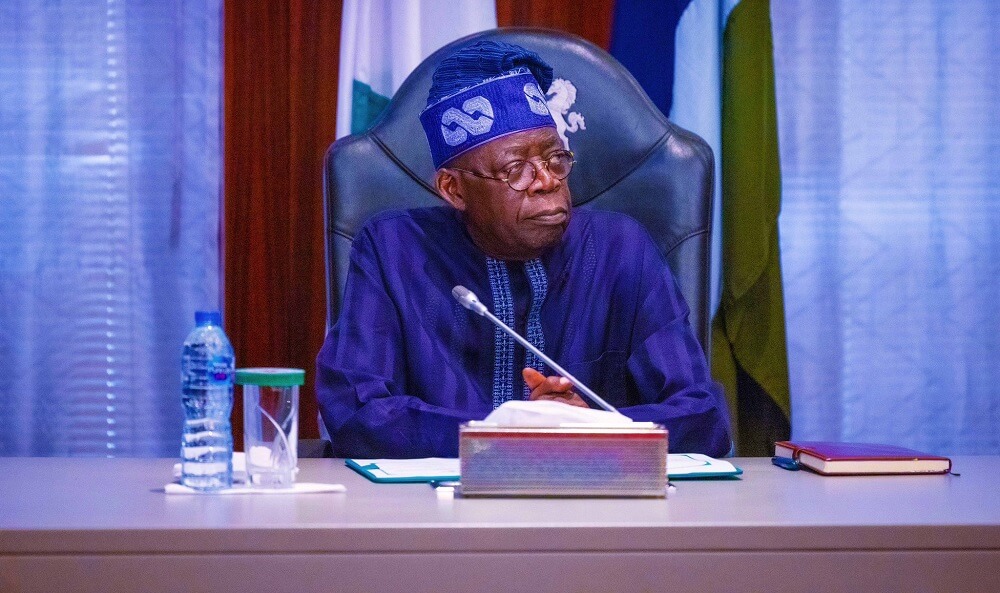Experts, APC Chieftain Knock Tinubu For Approving 15% Import Duty On Petrol, Diesel
…15% Fuel Import Tariff Will Bring Hardship On Nigerians — APC Chieftain
… Import Tariff Will Worsen Inflationary Pressures—Experts
President Bola Tinubu’s approval of a 15 per cent ad-valorem import duty on petrol and diesel imports into Nigeria has sparked widespread criticism from economic experts and political stakeholders, including members of his ruling All Progressives Congress (APC).
The new tariff, which takes effect immediately, is designed to protect local refineries and stabilise the downstream petroleum market.
However, analysts warn that it will likely trigger a fresh round of fuel price hikes and worsen inflationary pressures in the economy.
In a letter dated October 21, 2025, and made public on October 30, Tinubu directed the Federal Inland Revenue Service (FIRS) and the Nigerian Midstream and Downstream Petroleum Regulatory Authority (NMDPRA) to implement the policy under what the government described as a “market-responsive import tariff framework.”
The letter, signed by his Private Secretary, Damilotun Aderemi, conveyed the President’s approval following a proposal by FIRS Chairman, Zacch Adedeji.
The proposal sought to impose a 15 per cent duty on the cost, insurance, and freight (CIF) value of imported petrol and diesel to align import costs with domestic market realities and support local refining.
Adedeji explained that the move was part of ongoing reforms aimed at promoting local refining, boosting energy security, and strengthening the naira-based oil economy in line with the administration’s Renewed Hope Agenda.
“The core objective of this initiative is to operationalize crude transactions in local currency, strengthen refining capacity, and ensure a stable, affordable supply of petroleum products,” Adedeji stated.
He argued that the current misalignment between locally refined products and import-parity pricing has destabilized the market, making it difficult for domestic refineries to recover costs amid fluctuating exchange rates and shipping costs.
Advertisement
According to the FIRS projections, the 15 per cent import duty could increase the landing cost of petrol by about ₦99.72 per litre. This would push average pump prices in Lagos to around ₦964.72 per litre ($0.62)—though still below regional averages in Senegal ($1.76), Côte d’Ivoire ($1.52), and Ghana ($1.37).
A chieftain of the All Progressives Congress (APC) in Delta State, Chief Ayiri Emami, has faulted the decision, describing it as ill-timed and burdensome.
Speaking with journalists in Abuja on Thursday, Emami said the policy would impose additional hardship on ordinary Nigerians who are already struggling with rising costs of living.
“Anybody advising Mr President to impose a 15 per cent tax on petroleum right now is not doing him any good,” he said. “This kind of policy will not hurt marketers — it will hurt ordinary Nigerians. Whatever tax you put on petroleum goes straight back to the people on the streets. Nigerians are already hungry and struggling.”
The APC stalwart urged Tinubu to suspend the policy until the government introduces tangible relief measures.
“In my area, especially among those who live by the river and depend on fishing, fuel determines everything. When you buy fuel, it determines whether you can even go out to fish. It’s not that the fish are gone — it’s that we can’t afford to reach them anymore,” he lamented.
Advertisement
Emami added that while the government needs revenue, imposing such taxes amid economic hardship could alienate citizens and erode public confidence in the administration.
“For me, that 15 per cent should be kept aside until the government provides more relief to Nigerians. After removing the fuel subsidy, we haven’t seen much positive reflection. Things are still hard. So why add another burden?” he asked.
Economic analysts also said the new 15 per cent import duty will have far-reaching implications across several sectors.
The Registrar of the Institute of Finance and Control of Nigeria, Mr Godwin Eohoi said the measure is expected to raise the retail cost of petrol and diesel, further straining household incomes and small businesses that rely on fuel for transportation and power generation.
This, he argued, could also push headline inflation higher, as energy costs feed into food prices and logistics expenses.
He also said the transport fares and the cost of goods and services may rise nationwide, eroding purchasing power and possibly worsening poverty levels.
“The policy could deepen public discontent over the pace of economic reforms under the Tinubu administration, especially following the removal of fuel subsidies and the naira’s depreciation,” he added.
Advertisement
An Economist, Mr Johnson Dele reacting to the development in a chat with THE WHISTLER said the introduction of a 15 per cent ad-valorem import duty on petrol and diesel is a double-edged .
According to Dele, “On one hand, it’s a strategic step towards aligning Nigeria’s downstream market with its long-term energy transition goals. Protecting local refineries, especially as the Dangote Refinery and several modular plants ramp up production, will help Nigeria gradually reduce import dependence and conserve foreign exchange,” he said.
However, he noted that the immediate impact will likely be higher pump prices, which could fuel inflationary pressures and public discontent.
“The government must therefore accompany this move with transparent pricing mechanisms and targeted support to cushion consumers, or it risks eroding confidence in the ongoing reforms,” he said.

